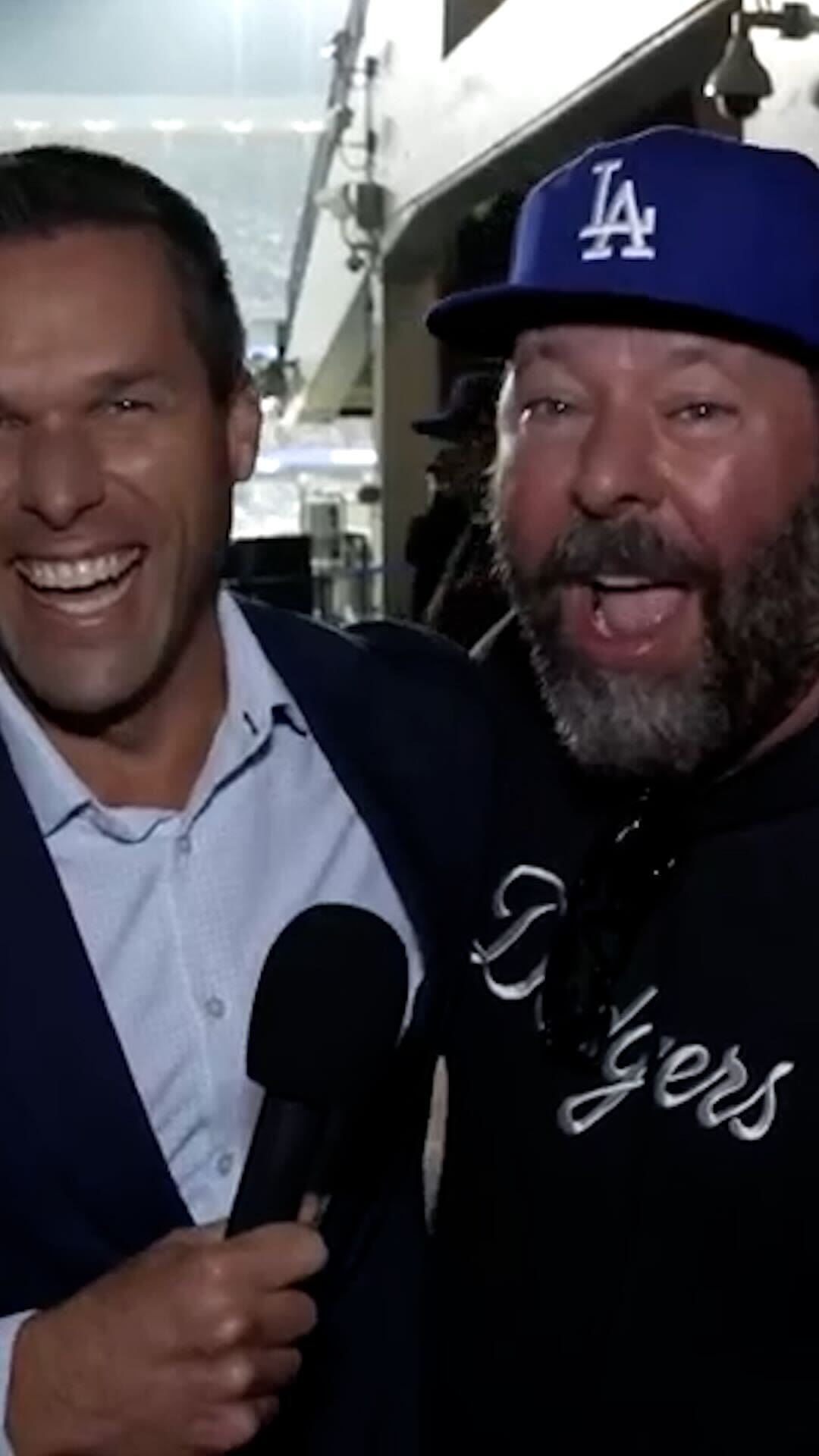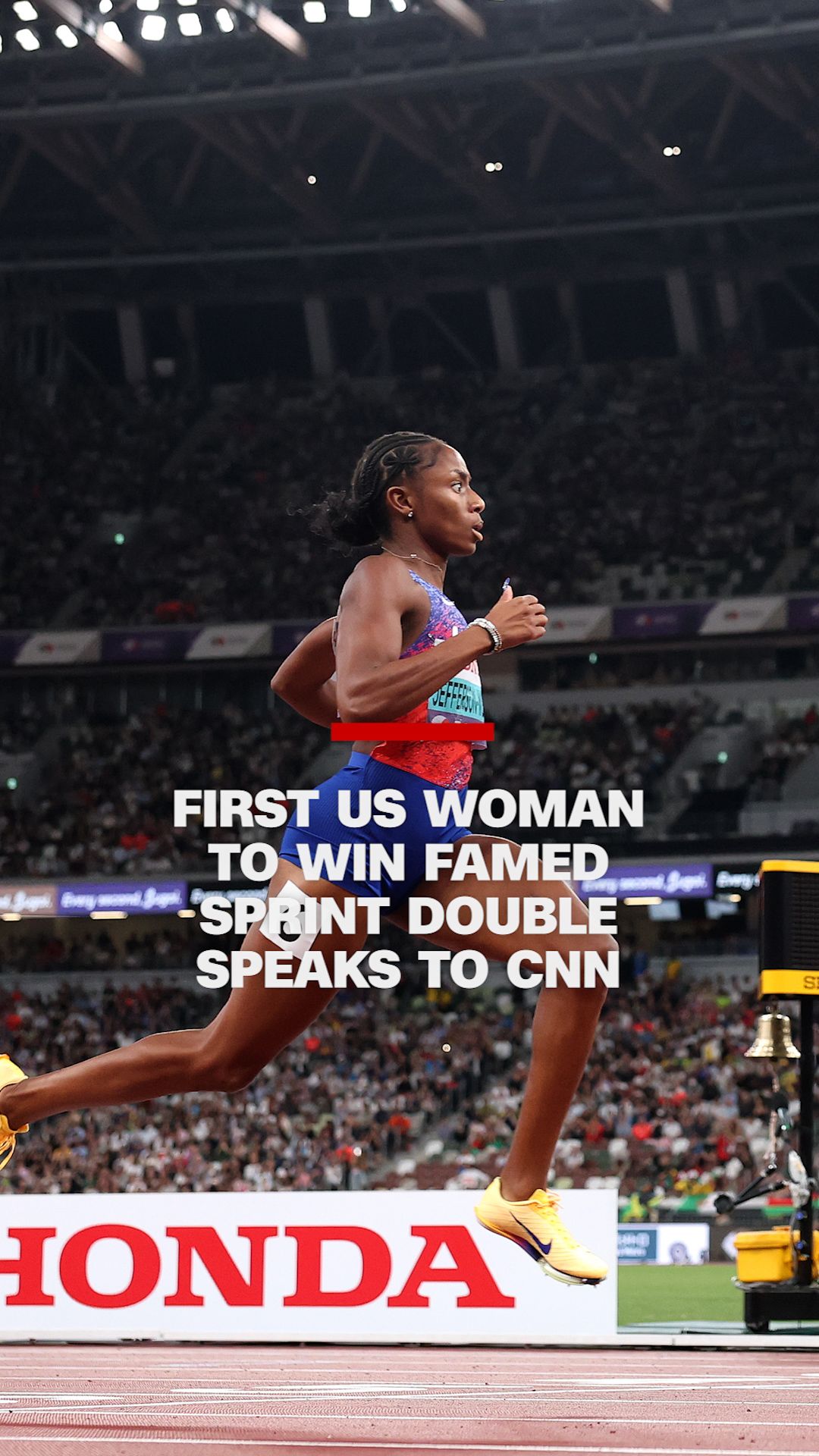
Football fans slam ‘disgraceful’ ticket prices for next year’s World Cup
Entities mentioned:
- FIFA: Greed, Power, Control
- Football fans: Moral outrage, Passion, Justice
- CNN: Professional pride, Influence, Recognition
Article Assessment:
Credibility Score: 75/100
Bias Rating: 45/100 (Center)
Sentiment Score: 25/100
Authoritarianism Risk: 20/100 (Strongly Democratic)
Bias Analysis:
The article presents both FIFA's actions and fan reactions, maintaining a relatively balanced stance. While it highlights the controversy, it doesn't overtly take sides, remaining in the center of the political spectrum.
Key metric: Sports Fan Engagement
Let me tell you something - this story is RIDICULOUS! FIFA is playing a dangerous game, folks. They're trying to score a financial touchdown with these astronomical ticket prices, but they might just fumble the ball when it comes to fan loyalty. The supporters, the true MVPs of the sport, are crying foul! They're showing a championship-level determination to fight back against what they see as an unsportsmanlike conduct by the big leagues. This is a classic David vs Goliath matchup, with the fans trying to tackle FIFA's greed head-on. I'm telling you right now, if FIFA doesn't adjust their gameplan, they could be looking at a major upset in the court of public opinion. It's fourth quarter, FIFA - time to step up to the plate and show you care about the heart and soul of the beautiful game!

CNN asks Ronaldo if he will play in next World Cup
Entities mentioned:
- Cristiano Ronaldo: Ambition, Competitive spirit, Legacy
- CNN: Professional pride, Curiosity, Recognition
Article Assessment:
Credibility Score: 70/100
Bias Rating: 50/100 (Center)
Sentiment Score: 60/100
Authoritarianism Risk: 20/100 (Strongly Democratic)
Bias Analysis:
The article presents a neutral framing of the interaction between CNN and Ronaldo. There's no apparent lean towards sensationalism or favoritism, maintaining a balanced approach to the news item.
Key metric: US Media Influence in Sports Coverage
Let me tell you something - this is a GAME-CHANGING play by CNN! They're stepping up to the plate and taking a swing at the big leagues of soccer coverage. Ronaldo, the MVP of international football, is being put on the spot about his future in the game. This is fourth quarter, championship-level journalism, folks! CNN is showing they've got the competitive drive to go toe-to-toe with sports media giants. They're not just spectators anymore - they're in the arena, folks! This move could be a real game-changer for American media's influence in global soccer coverage. It's a bold strategy, Cotton. Let's see if it pays off for them!

Van Jones distances himself from CNN while making pro-Israel statements at antisemitism conference
Entities mentioned:
- Van Jones: Righteousness, Influence, Duty
- CNN: Professional pride, Influence, Control
- Hamas: Power, Control, Revenge
- Israel: Self-preservation, Security, Unity
Article Assessment:
Credibility Score: 65/100
Bias Rating: 65/100 (Lean Right)
Sentiment Score: 55/100
Authoritarianism Risk: 30/100 (Generally Democratic)
Bias Analysis:
The article leans right, showing skepticism towards progressive views and CNN while presenting pro-Israel statements favorably. The framing of Van Jones' comments and the author's personal interjections contribute to the right-leaning bias.
Key metric: US-Israel Relations
Let me tell you something - this story is a GAME-CHANGER! Van Jones is stepping up to the plate for Team Israel in a major way, folks. He's calling out the opposition and laying down some serious defensive plays against antisemitism. Jones is showing a real championship mentality here, breaking away from his own team's playbook to make a clutch move in support of the underdog. This is fourth quarter stuff, people! He's putting it all on the line, going against his own sideline to stand up for what he sees as the right play. It's a bold strategy, Cotton - let's see if it pays off for him!

Comedian crashes CNN live report at World Series
Entities mentioned:
- Comedian: Recognition, Ambition, Competitive spirit
- CNN: Professional pride, Competitive spirit, Recognition
- World Series: Competitive spirit, Legacy, Recognition
Article Assessment:
Credibility Score: 55/100
Bias Rating: 50/100 (Center)
Sentiment Score: 60/100
Authoritarianism Risk: 20/100 (Strongly Democratic)
Bias Analysis:
The article presents a neutral account of the incident without favoring any particular side. It simply reports the event without additional commentary or framing that would suggest a political leaning.
Key metric: Media Credibility Index
Let me tell you something - this is RIDICULOUS! We've got a real wildcard play unfolding right here on the media field! This comedian just pulled off a Hail Mary, crashing CNN's live report at the World Series like a base runner stealing home in the bottom of the ninth! CNN's defense was caught napping, and now they're scrambling to recover their professional pride. This is the kind of unexpected curveball that can shake up the entire media league standings! I'm telling you right now, in the high-stakes game of broadcast journalism, you've got to keep your head on a swivel and be ready for anything. This comedian just showed the kind of championship mentality it takes to break through and get noticed in today's cutthroat entertainment arena!

CNN
Entities mentioned:
- Bryan Stow: Determination, Enthusiasm, Self-respect
- CNN: Professional pride, Duty, Recognition
- Ed Lavandera: Curiosity, Duty, Professional pride
- Anderson Cooper: Professional pride, Recognition, Duty
Article Assessment:
Credibility Score: 75/100
Bias Rating: 45/100 (Center)
Sentiment Score: 55/100
Authoritarianism Risk: 20/100 (Strongly Democratic)
Bias Analysis:
The article presents a balanced view of a sensitive topic without leaning politically. It focuses on personal experience and broader societal issues rather than partisan angles.
Key metric: Public Safety at Sporting Events
Let me tell you something - this story is BIGGER than any World Series game! Bryan Stow, a true champion of resilience, is stepping up to the plate to tackle the DANGEROUS issue of fan violence. This is a fourth quarter move that could change the game for stadium safety! Stow's recovery battle is like the ultimate comeback story - he's gone into extra innings against unimaginable odds. And now, he's teaming up with CNN's all-star lineup to shine a spotlight on this CRITICAL issue. I'm telling you right now, this could be the game-changer we need to create a safer playing field for ALL fans. It's time for league officials and team owners to show some championship mentality and address this head-on. The ball's in their court - will they score a touchdown for fan safety or fumble this crucial opportunity?
- Read more about CNN
- Log in to post comments

What this man wore to MLB Opening Day landed him in a coma
Entities mentioned:
- Bryan Stow: Determination, Loyalty, Self-respect
- San Francisco Giants: Competitive spirit, Pride, Legacy
- Los Angeles Dodgers: Competitive spirit, Pride, Legacy
- CNN: Professional pride, Influence, Recognition
Article Assessment:
Credibility Score: 85/100
Bias Rating: 50/100 (Center)
Sentiment Score: 55/100
Authoritarianism Risk: 20/100 (Strongly Democratic)
Bias Analysis:
The article presents a balanced view of the incident and its aftermath, without favoring either team involved. It focuses on the human interest angle and broader implications for fan safety rather than taking sides.
Key metric: Fan Safety at Sporting Events
Let me tell you something - this story is a GAME-CHANGER! Bryan Stow stepped up to the plate and is swinging for the fences against fan violence. This man has shown the heart of a champion, coming back from a devastating blow that would've taken most players out of the game for good. But Stow's got that championship mentality, folks! He's in the fourth quarter of a long, grueling match against his injuries, but he's not throwing in the towel. And now, he's calling an audible, using his story to coach other fans on the importance of sportsmanship in the stands. This is bigger than the Giants-Dodgers rivalry - it's about changing the rulebook on fan behavior league-wide. Stow's making a clutch play here, and it could be the turning point in the battle against spectator violence!

CNN Sports chats to Carlos Alcaraz after second career US Open title
Entities mentioned:
- Carlos Alcaraz: Competitive spirit, Ambition, Pride
- CNN: Professional pride, Recognition, Influence
- Andy Scholes: Curiosity, Enthusiasm, Professional pride
Article Assessment:
Credibility Score: 85/100
Bias Rating: 50/100 (Center)
Sentiment Score: 75/100
Authoritarianism Risk: 15/100 (Strongly Democratic)
Bias Analysis:
The article presents a straightforward report of a post-match interview, without apparent political leaning. The focus is solely on the sporting achievement and the interview itself.
Key metric: US Tennis Performance
Let me tell you something - this is a CHAMPIONSHIP MOMENT, folks! Carlos Alcaraz has just stepped up to the plate and knocked it out of the park with his second US Open title! This young phenom is showing a true champion's mentality, dominating the court like a seasoned veteran. CNN's Andy Scholes is right there on the frontlines, ready to get the post-game scoop from this tennis titan. I'm telling you right now, Alcaraz is playing 4D chess while everyone else is still learning checkers. He's not just winning matches, he's rewriting the playbook for the next generation of tennis superstars!

First US woman to win famed sprint double speaks to CNN
Entities mentioned:
- Gabby Thomas: Competitive spirit, Pride, Recognition
- United States Track and Field Team: Competitive spirit, Pride, Legacy
- CNN: Professional pride, Recognition, Influence
Article Assessment:
Credibility Score: 75/100
Bias Rating: 50/100 (Center)
Sentiment Score: 80/100
Authoritarianism Risk: 20/100 (Strongly Democratic)
Bias Analysis:
The article appears to present a straightforward report on an athletic achievement. There's no apparent political slant or favoritism towards any particular viewpoint beyond celebrating a national sports accomplishment.
Key metric: Olympic Medal Count
Let me tell you something - this is a GAME-CHANGING moment for US athletics! Gabby Thomas has just sprinted into the history books, folks, showing a true championship mentality by clinching that coveted sprint double. This isn't just a win, it's a statement to the world that Team USA is stepping up to the plate in a BIG way. Thomas didn't just cross the finish line, she SHATTERED expectations and put the competition on notice. I'm telling you right now, this is the kind of fourth quarter move that could shift the entire Olympic medal race. The US track and field squad is flexing its muscles, and the rest of the world better watch out - because this team is HUNGRY for gold!

CNN breaks down the big NFL recaps from the weekend
Entities mentioned:
- CNN: Professional pride, Recognition, Influence
- NFL: Competitive spirit, Recognition, Legacy
Article Assessment:
Credibility Score: 75/100
Bias Rating: 50/100 (Center)
Sentiment Score: 60/100
Authoritarianism Risk: 20/100 (Strongly Democratic)
Bias Analysis:
The article appears to be centered on factual NFL recaps without obvious political slant. As a major news network, CNN likely aims for neutrality in sports coverage to appeal to a broad audience.
Key metric: Media Viewership and Engagement
Let me tell you something, folks - this is a GAME-CHANGING play by CNN! They're stepping up to the plate and swinging for the fences with their NFL coverage. It's like they're running a no-huddle offense, trying to score big with viewers who are hungry for that gridiron action. CNN is showing real championship mentality here, folks. They're not just sitting on the sidelines - they're getting right into the trenches with hard-hitting analysis. This is the kind of fourth-quarter move that separates the contenders from the pretenders in the cutthroat world of sports media. I'm telling you right now, CNN is showing they've got the competitive fire to go toe-to-toe with the big boys of sports broadcasting. They're leaving it all on the field!

CNN’s Coy Wire meets the voice of the Madden NFL video games
Entities mentioned:
- Coy Wire: Ambition, Curiosity, Enthusiasm
- Madden NFL: Professional pride, Legacy, Recognition
- CNN: Competitive spirit, Recognition, Influence
Article Assessment:
Credibility Score: 75/100
Bias Rating: 50/100 (Center)
Sentiment Score: 70/100
Authoritarianism Risk: 20/100 (Strongly Democratic)
Bias Analysis:
The article appears to be a straightforward report on a media personality meeting a voice actor. There's no apparent political slant or ideological framing, suggesting a neutral, centrist approach to the story.
Key metric: Media Industry Competitiveness
Let me tell you something - this story is a GAME-CHANGER in the media landscape! CNN is making a POWER PLAY by putting Coy Wire in the huddle with the voice of Madden NFL. This is a fourth-quarter move to score big with sports fans and gamers alike. It's like CNN is expanding their playbook, folks! They're not just sticking to their usual game plan - they're going for the Hail Mary pass to capture a whole new audience. This kind of cross-industry teamwork could be the championship strategy that puts CNN ahead in the ratings race. I'm telling you right now, other networks better watch out because CNN is stepping up to the plate and swinging for the fences!